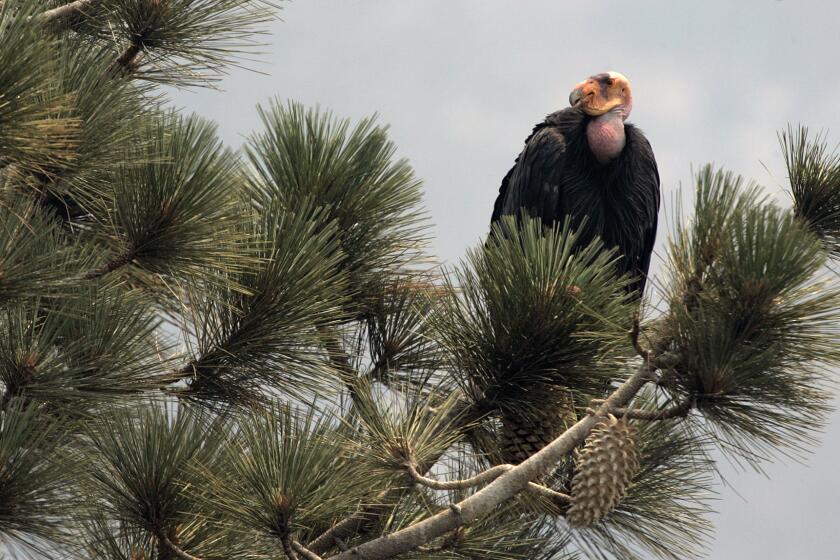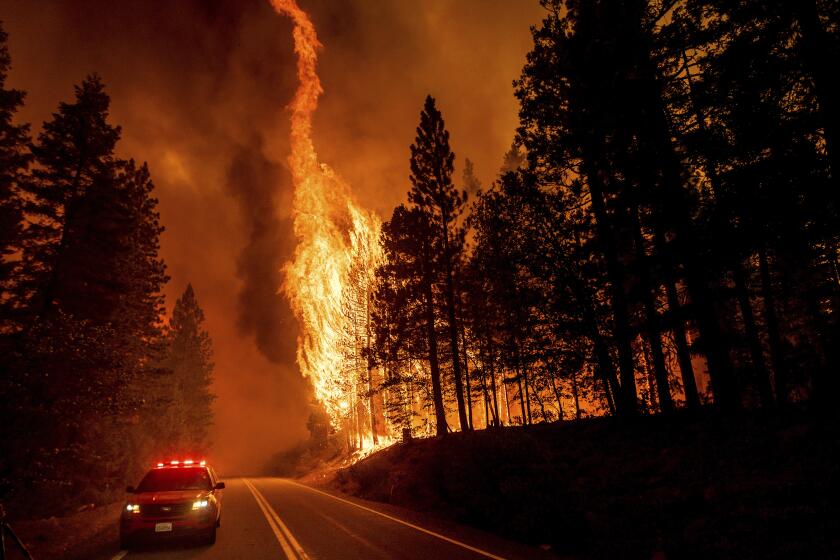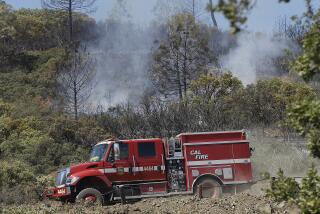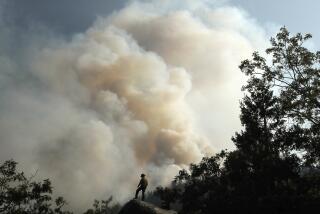Man convicted of setting Big Sur wildfire that killed 12 endangered condors
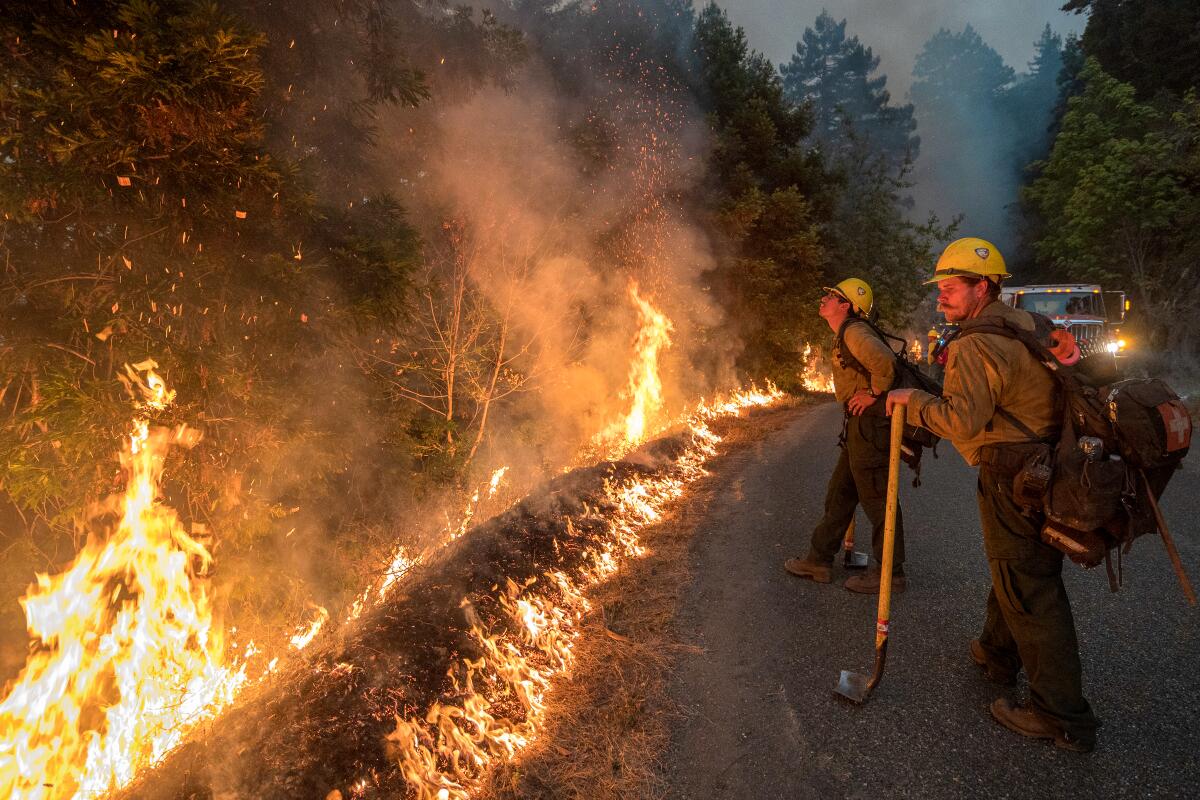
- Share via
A 31-year-old man has been found guilty of igniting a 2020 wildfire in Big Sur that killed 12 endangered California condors, seriously injured a firefighter and destroyed multiple homes, prosecutors announced this week.
Ivan Gomez was convicted Thursday of 16 felony counts, including arson for sparking the 125,000-acre Dolan fire in the Los Padres National Forest; cruelty to animals for killing multiple condors; and cultivating marijuana and throwing rocks at vehicles, according to Monterey County Dist. Atty. Jeannine Pacioni.
The blaze erupted on the evening of Aug. 18, 2020. California State Parks and Recreation officers first spotted flames cresting a ridgeline in the forest known as the “top of the world,” the D.A.’s office said. Around the same time, officers received reports of a man throwing rocks at vehicles on Highway 1 and the Lime Creek Bridge.
Officers found the man — later identified as Gomez — shirtless, sweating and carrying multiple working lighters, prosecutors said.
He told the officers he had started the fire at an illegal marijuana grow on the other side of the ridge. He also told them he had killed five men, though no evidence of any homicides was ever found.
But a multi-week investigation by the U.S. Forest Service’s Wildland Fire Investigation Team concluded that the fire did originate at the marijuana grow site, prosecutors said, noting that Gomez “correctly identified the area of origin.”
A California wildfire has destroyed a sanctuary for the endangered California condor. The fate of several birds, including a chick, remains unknown.
Firefighters testified that no other individuals were found in the area and that Gomez would have had ample time to start the fire and make it to the Lime Creek area where he was confronted by the officers.
Gomez also admitted numerous times to starting the fire during a three-hour interview with detectives from the Monterey County Sheriff’s Department, prosecutors said.
An attorney for Gomez did not immediately respond to a request for comment Friday.
2020 was the worst wildfire season ever recorded in California with more than 4 million acres burned, and the Dolan fire proved immensely dangerous as it seared through dried brush and grasses.
The fire was not fully contained until Dec. 31, more than four months after it started.
Fourteen firefighters were nearly overrun while battling the blaze and had to deploy a cocoon shelter, a last resort to protect themselves from the heat, according to an incident report from the Wildland Fire Lessons Learned Center.
One firefighter told the reviewers the heat was so stifling that “I felt like all the fluid was being roasted out of me.” Another firefighter who couldn’t get his fire shelter from a burning truck said a colleague pulled him into her deployed shelter, saving his life.
A fire captain was severely injured during the incident, and three firefighters were hospitalized with burns and smoke inhalation, officials said.
A confounding collection of Californians have been accused of arson this year. Experts weigh in on the causes and consequences of the complex crime.
But the fire claimed the lives of a dozen California condors when it burned through an 80-acre sanctuary in Big Sur operated by the Ventana Wildlife Society of Monterey.
With a wingspan of up to nine feet, the California condor is the largest North American land bird and is considered critically endangered. According to the National Park Service, there are only about 500 of the birds in the world.
Twelve condors, including two chicks, died in the blaze, which also ruined multiple condor nesting structures and injured several other birds.
The sanctuary lost pens, a research building and other facilities during the Dolan fire, prosecutors said. In all, the fire destroyed 14 structures, including 10 residences.
Gomez faces a maximum sentence of 24 years in prison, according to the D.A.’s office. Sentencing is scheduled for May 18.
More to Read
Sign up for Essential California
The most important California stories and recommendations in your inbox every morning.
You may occasionally receive promotional content from the Los Angeles Times.
